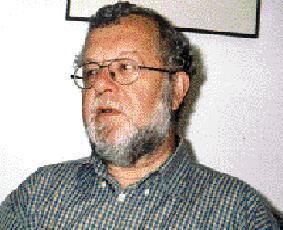
Local Authority and Its Information Plan [Archives:2000/36/Law & Diplomacy]
September 4 2000
Yasser Mohammed
Yemen Times
Within the context of moving into the Local Authority System and out of aims of its set up program particularly regarding enhancement of local administration capabilities in various field, the system’s program for the remaining period of year 2000 includes:
The main item is to hold consultative meetings grouping the governors and higher local leadership. Such meetings are aimed at holding discussions and consultations on proper measures related to implementation of local authority system and their role in this respect.
The other goal is to conduct a surveying economic and social study on situations of 12 governorates and to design and set up general information plan for spreading awareness on the concept of local authority. The meetings are also concerned with reviewing general laws particularly those pertaining to the local authority and all of its administrative systems. Added to that is the carrying out of a study on accomplished of local development and services projects and conditions of their administrations.
The major trends of the information plan are the defining of the idea of local authority and its characteristics and the bases of its building and also offering examples on such an experiment in various Arab and foreign countries. It also aims at explaining the local authority law and its regulations and highlighting local rule system importance for consolidating the national unity, the people’s constitutional rights and popular contribution to development and running local affairs and decision-making. The information plan also aims at explaining the idea of decentralization on which the local authority system is based.
The plan covers two stages. The first stage covers the period from July-September 2000 concentrating on preparing an estimated cost of programs for implementing the information plan to be referred to the ministerial commission to be approved.
The second stage, (October -December 2000), focuses on implementing awareness programs targeting officials of the Local Administration Ministry. It also consists of field work of the awareness team comprising members of the technical committee covering all governorates. Performance of the team would include carrying out all awareness activities on the local authority, using all available means.
Ambassador of Netherlands to YT: “The Dutch Government is involved
in many projects in Yemen”

Q: Netherlands is considered to be one of the most important donor countries to Yemen. Will you brief us on the projects supported by the Dutch government?
A: Most of the projects are running and we have long-term projects and programs. We have conducted some projects in water and health in Dhamar, Sa’adah, Hodeidah. In the previous year there has been a great change on the way we are going through. In the past we have been trying our best to work with the local population. But we’ve changed our course now. This is a general idea coming out of the analysis made by the World Bank. We came to know that working with the population is not the most effective way of giving assistance as only very few section of the people will get the benefit of this assistance. So we came to the conclusion that we should help the government or other organizations to build themselves up. At the end when they prove that they are good and trustworthy, only then, we can give them the money and they take the task of building their country. Eventually, this means that the whole population will get advantages of overall program.
The government has been trying to build up a good, clear and well-controlled and non-corrupt system. This is much better to the country as a whole rather than having some programs scattering here and there. We are not the only institution that is taking this tendency. This, of course, will take time. Besides, the bureaucracy here has to be better organized. Control of the money is not well organized. Therefore, the government has to address these things.
We are giving much attention to the health, water and agriculture. We have some activities pertaining to women. We work on different activities to see the position of women. That what we call gender issues. By gender we refer to the different roles of men and women in production and other issues of development.
We do help organizations to enhance transparency in these. We will start a small program to train judges how to settle things in courts.
We have a cultural program which supports the national museum project. We will support the excavation of Mahram Bilqis in Mareb. We will also help other organizations to protect historic cities. So we are involved in quite a number of projects.
Regarding women studies center we used to fund and provide it with some assistance. However, when the university council stopped it we stopped our assistance. Later, a new center was established though with a new title, we continued our assistance.
Q: What is the contribution of the Dutch government in relieving the problem of water shortage?
A: We are involved with the international water resources authority. We give assistance to build them up. We, will in the future, try to enhance a better irrigation system. We are working in these kinds of activities. However, the people should not depend completely on us. It is the government and the people who have to take action.
Q: How do you assess the development process in the country?
A: I think there is some interesting development in a positive sense and slow emerging democracy on one hand. However, there are some steps backwards, on the other. But I do not want to say much about that. I think the government certainly realize the problems. The problem is the implementation of ideas. The government has a lot to address many of issues in its institutions. That is where we want to help the government, of course, on the request of the government. We do not take any initiatives any more.
——
[archive-e:36-v:2000-y:2000-d:2000-09-04-p:./2000/iss36/l&d.htm]


